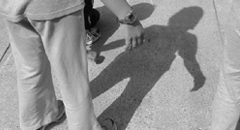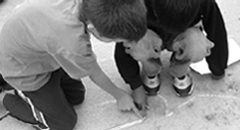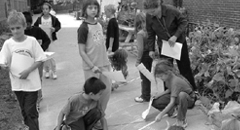
|

|

|
Here we share some observations in addition to the overarching features of documentation. These additional aspects of documentation may be particularly interesting to those who are considering or already exploring the use of documentation in their practice and wish to deepen their understandings of observing and guiding teaching and learning in groups.
- Documentation focuses on the processes as well as the outcomes and products of learning.
- Documentation is fundamental to metacognitive activity; it helps children and adults understand how they and others learn.
- Documentation serves as a memory of what goes on in the classroom, offering students an opportunity for reflection, for evaluation of other children's theories and hypotheses, and for self-assessment. It moves us away from the idea that it is only the teacher who teaches.
- Documentation can be created by teachers, children, and/or parents.
- Documentation often has a narrative quality, telling the story of an individual's or group's learning experiences.
- Documentation can include moments of learning; it does not need to be restricted to project work. One way to start is by capturing a single moment, writing it up, and sharing it with others.
- Making visible images of learning and being together in a group is a way to foster group identity and learning.
- There are many ways to document.
[Home] [Site Map]